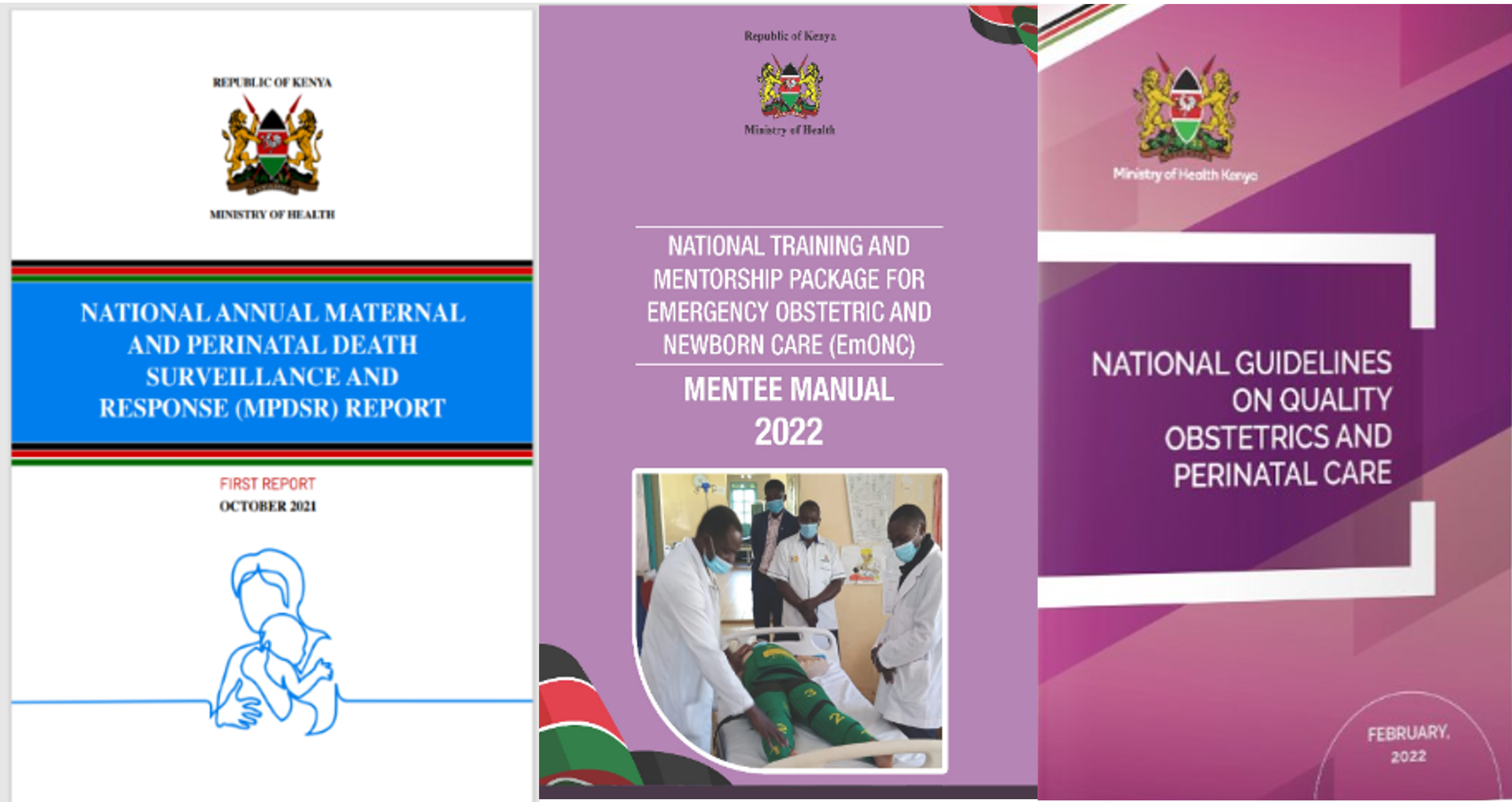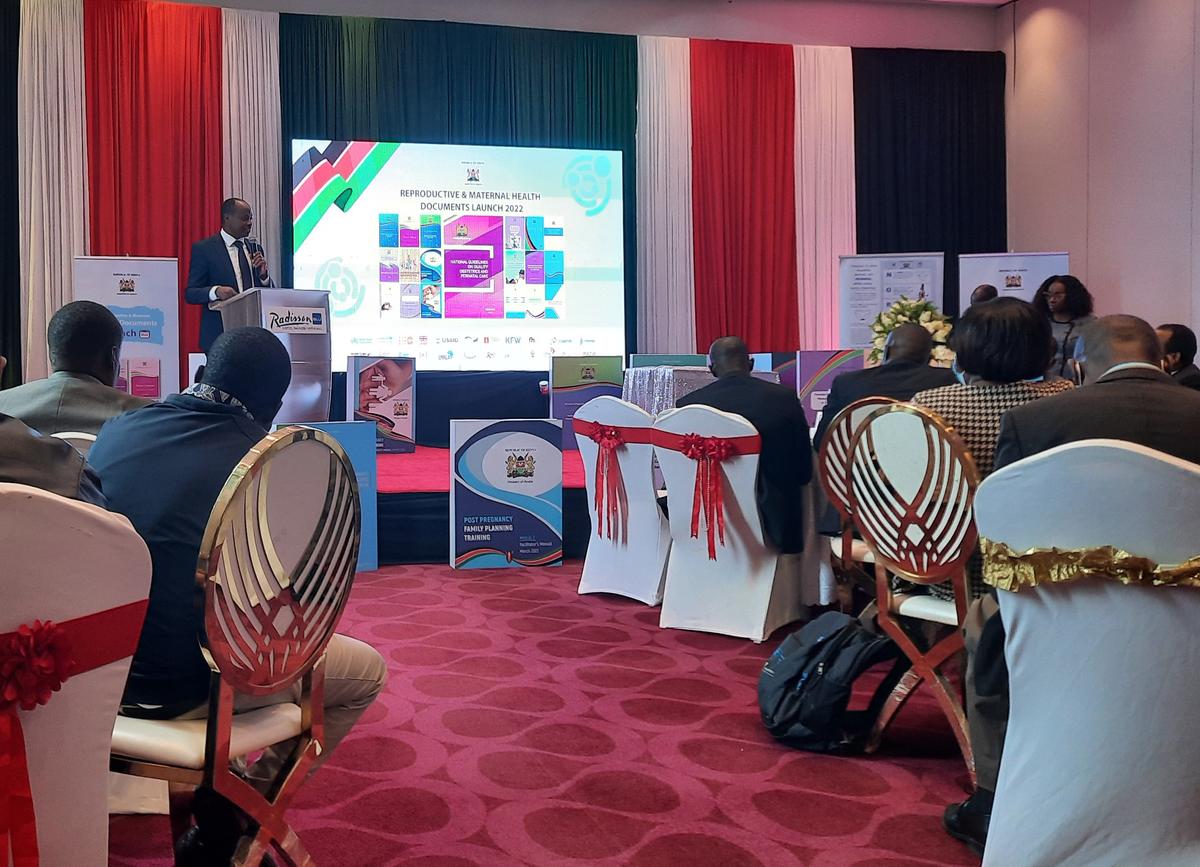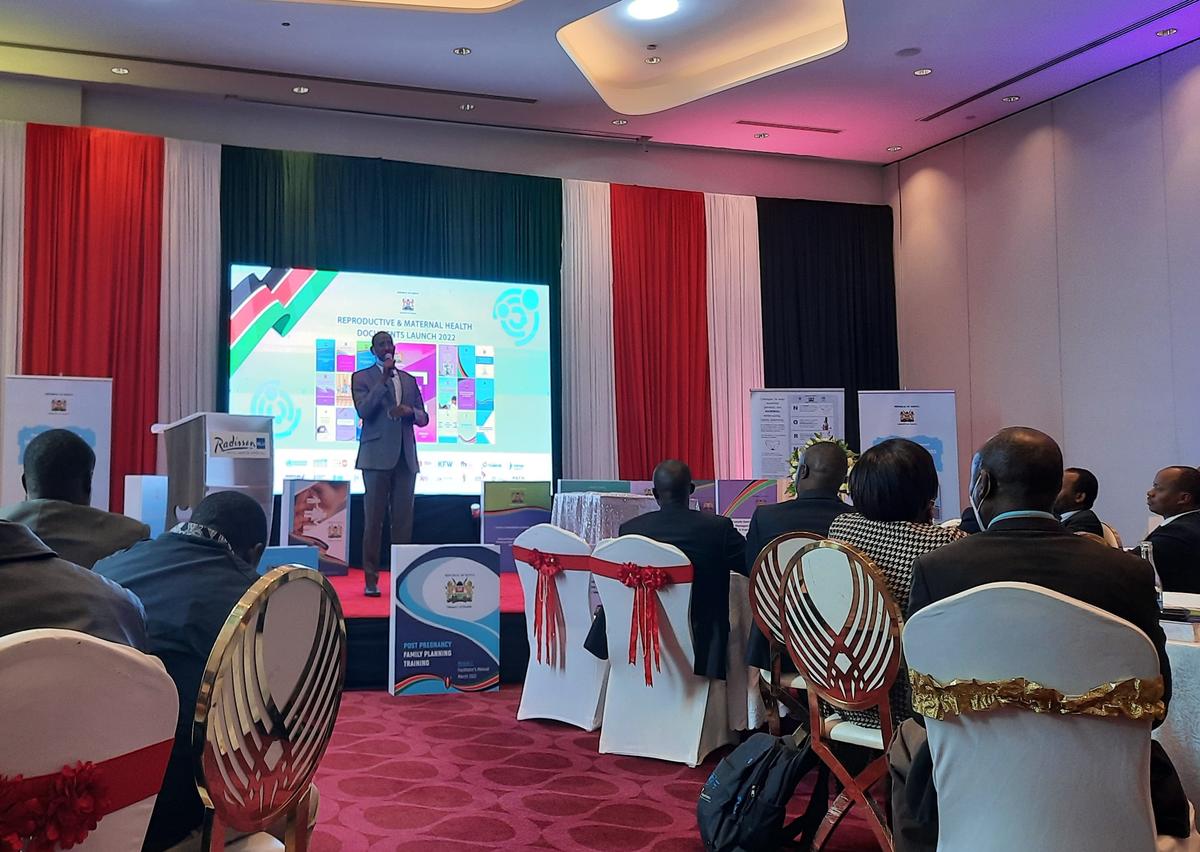
Maternal mortality remains a major public health problem in Kenya. The Kenya Demographic and Health Survey 2014 reported the maternal mortality to be 362 per 100,000 live births. The 2019 Housing and Populations Census Analytical report on Mortality reported a maternal mortality of 355 per 100,000 live births which is a slight reduction from 2014. Kenya is one of the countries that did not meet the maternal health Millennium Development Goals target of reducing by 75 percent the maternal mortality ratio using the 1990 maternal mortality ratio as the baseline. According to the Confidential Enquiry into Maternal Death 2017 report, the top five direct causes of maternal deaths are hemorrhage, hypertension in pregnancy, infections/sepsis, obstructed labour and post abortion complications. With the renewed focus on the Sustainable Development Goals (SDG), a lot of efforts needs to be put in place to accelerate the reduction of maternal mortality to achieve the SGD global MMR target of 70 per 100,000 live births. An effective strategy to reduce maternal and perinatal mortality is the implementation of Maternal and Perinatal Death Surveillance and Response (MPDSR). National guidelines for MPDSR were launched in Kenya in 2016. These guidelines have provided a national road map and guided the development of the first National Annual MPDSR Report that is among key policy documents launched by the Ministry of Health in June 2022. LSTM played a key role in providing technical support in development of both the national MPDSR guidelines and the first annual MPDSR report.
The key RH policy document launch by the Kenyan Ministry of Health, Division of Reproductive and Maternal Health Services together with stakeholders working in the Reproductive Health space in Kenya launched a total of 14 policy documents. The purpose of these documents is to guide the implementation of Reproductive, Maternal, Adolescent and Newborn Health services in Kenya. The policy documents were developed through partnerships with stakeholders and provide a framework for improving quality of care and service delivery. Among the policy documents launched, the Liverpool School of Tropical Medicine with funding from Foreign Commonwealth Development Office (FCDO) provided technical support to the development of three of these documents (see top image). These are; i) the first National Maternal and Perinatal Death Surveillance (MPDSR) Report, ii) the National Training and Mentorship Package for Emergency Obstetric and Newborn Care (EmONC) and iii) the National Guidelines for Quality Obstetric and Perinatal Care.
The National Annual MPDSR report is the first ever national report to be produced by the Ministry of Health Kenya. It focuses on maternal and perinatal deaths that occurred in Kenya over the period between 1st July 2019 and 30th June 2020. LSTM provided technical support to the review and analysis of data from the Kenya Health Information System (KHIS) and consolidating findings from the County bi-annual MPDSR reports through stakeholder workshops. The development of the National Training and Mentorship Package for Emergency Obstetric and Newborn Care (EmONC) and the National Guidelines for Quality Obstetric and Perinatal Care, relied on implementation approaches and research conducted by the LSTM in the country since the year 2009.
The launch event was graced by the Dr Mulwa, Director, Preventive and Promotive Health Services, Ministry of Health who noted that previously County governments lacked reference documents that can give counties guidance on how to standardize quality of care.

“Development of policy guidelines is what the National Government is meant to do,” Dr Mulwa, Director Preventive and Promotive Service
Speakers at the event reiterated the need for taking collective action in operationalizing the policies and guidelines and in ensuring dissemination of the policy documents at the sub-national /county levels and to the level health facilities so that first-line health care workers are well informed of the policy direction with regards to reproductive health service delivery.

"It is our collective responsibility to take action to prevent maternal and perinatal deaths and shift norms to create a safe, conducive, and protective environment where pregnant women can live and their newborns to survive and thrive,”
Stakeholders at the launch raised concerns that despite the heavy investments in maternal and newborn health in Kenya, little progress has been made with regards to the reduction of maternal mortality. More efforts therefore need to be put towards addressing the bottlenecks to increasing access to skilled attendance and quality emergency obstetric care, noted Dr Isaak Bashir, Head of Family Health Ministry of Health Kenya.